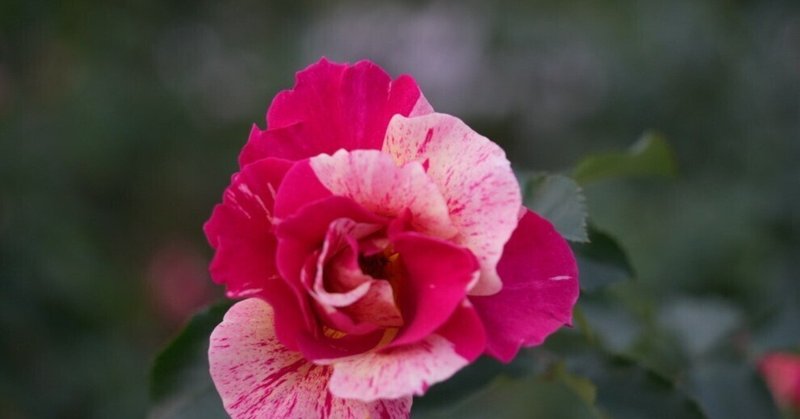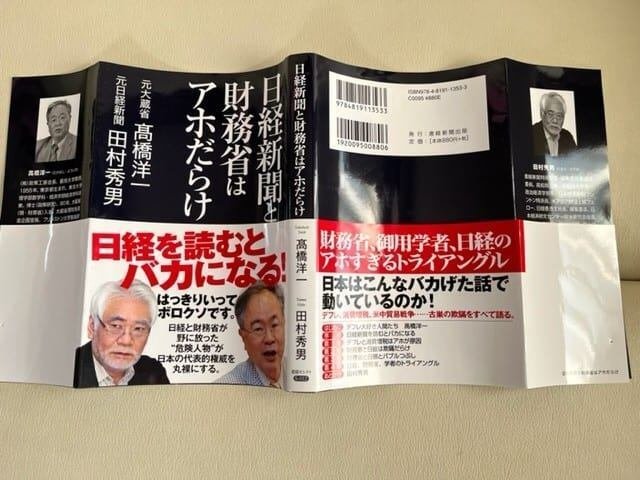
It would be best if you didn't read Nikkei because they write about a little bit of a story in "making a mountain out of a molehill" (laughs).
In response to Nikkei and Asahi's argument, "Don't miss the bus," we continue to argue, "Will you ride the Communist Party bus driven by General Secretary Xi Jinping?" and "Will you ride in a mud boat?" on February 15, 2022.
The following is from the next book, published on December 19, 2018.
It is a must-read not only for the Japanese people but for people worldwide.
Emphasis in the text, except for the headline, is mine.
Introduction: Reading the Nikkei Shimbun Makes You Stupid, "Don't Miss the Bus" Ignorance
Tamura
In the Nikkei Shimbun, dated August 21, 2018, you ran the headline, .
It gives the impression that Malaysian Prime Minister Mahathir is siding with China.
Even when I was at Nikkei, the editorial executives were pro-China, but that wasn't that bad.
Takahashi
It would be best if you didn't read Nikkei because they write about a little bit of a story in "making a mountain out of a molehill" (laughs).
Tamura.
That would be the end of the story (laughs).
For example, the headlines in the August 21 issue of Sankei were "Malaysian PM checks China, stresses friendship" and "We do not want neo-colonialism" during his visit to China.
While the Sankei article states that Prime Minister Mahathir said precisely what he needed to say in China, the Nikkei article states the following.
"Chinese President Xi Jinping and Prime Minister Li Keqiang met separately with Malaysian Prime Minister Mahathir, who was visiting Beijing on April 20, and agreed to expand trade, including increasing imports of agricultural products. The meeting was staged to restore bilateral relations, which had been gapped by Mahathir's proposal to review infrastructure projects involving Chinese companies. It is a form of avoiding friction with neighboring countries in anticipation of a trade war between the U.S. and China."
In other words, the story is that Prime Minister Mahathir has bowed out.
The Nikkei and Asahi editorials are saying, "Don't miss the bus," about China's One Belt, One Road (the modern Silk Road Economic Zone) and the AIIB (Asian Infrastructure Investment Bank).
Takahashi
I think it was in 2005 when I appeared on a T.V. Asahi program, the theme was "One Belt, One Road," and there were four guests.
It was a one-to-three situation.
Three of the guests, except me, were saying, "Don't miss the bus.
I pointed out that the AIIB has high interest rates and will become a loan shark, and my prediction was correct (laughs).
So people who need help understanding this level of talk say, "Don't miss the bus.
I once advised Prime Minister Shinzo Abe, saying, "It is definitely better for Japan and the U.S. not to participate because the base interest rate of international finance is lower than that for China. The AIIB will have higher financing costs if Japan and the U.S. do not participate. So, China, which wants to gain "Japan's trust," will eventually ask us to join.
I predicted this, and the prime minister was right.
I think many of the people who said, "Don't miss the bus," don't even know what the base interest rate is.
They cannot analyze without knowing the basics.
Tamura.
I would explain to our reader that the base interest rate is as follows:
When international financial institutions lend money, they procure money from somewhere and lend it out. The rate at which they procure the money is called the base interest rate.
The country behind the international institution is vital for the base interest rate.
If the international organization fails, the interest rate will be determined by who is behind it.
In the case of AIB, the backer is China.
In the case of the AIIB, China is the backer, and the base interest rate is almost the same as the cost of procurement in China's international finance.
The Nikkei Shimbun is pro-China
Takahashi.
The Asian Development Bank (ADB) is backed by Japan and the U.S., in effect, Japan.
Japan's funding cost then determines the base interest rate.
Financing is determined by looking at where the backing is coming from.
Since the AIIB did not have Japan or the U.S. participating, it is easy to see that China is the backer.
China's procurement costs in the international market are considerably higher than those of Japan.
This is because China is not very trusted.
As a result, the AIIB's procurement costs cannot exceed China's, so Japan's base interest rate is lower.
Tamura.
That is obvious.
Takahashi.
Then, the AIIB would be forced to lend at a relatively high procurement cost.
Of course, China can lower the interest rate by inserting subsidies, but that will not be possible for a long time.
So, the prediction is that they will become a loan shark.
Tamura.
I have been writing since 2014 that the AIIB is a sham.
In response to Nikkei and Asahi's tone of "don't miss the bus," I have continually refuted them by saying, "Are we getting on a Communist Party bus driven by General Secretary Xi Jinping?" and "Are we getting on a mud boat?"
China is creating the AIIB even though the U.S. and Japan already have an Asian Development Bank.
China argues that it needs the AIIB because it lacks infrastructure funds.
However, the Asian Development Bank lends the most enormous amount to China.
That is strange, isn't it?
I once had a heated discussion about the Asian Development Bank with Mr. Takehiko Nakao, the ADB President who succeeded Mr. Haruhiko Kuroda (the current Bank of Japan Governor).
At a meeting with Mr. Nakao and the editorial board members of national newspapers and NHK, he said, "China is going to establish the AIIB on its initiative to lend the missing infrastructure funds. Since you are the president of the Asian Development Bank, you should say that China should first pay back the money it borrowed from the AIIB."
I also told President Nakao about China's foreign currency situation.
China appears to have a large amount of foreign currency reserves, but in reality, it does not. It is a complete lie that China's leadership can carry out international finance and lending at low-interest rates. And yet, Mr. Nakao, you say that the Asian Development Bank is willing to cooperate with them?"
I snapped at him furiously.
It was in June of 2014.
Since then, I have not been invited to media opinion exchange meetings with Mr. Nakao (smiles wryly).
The ADB is located in a different district of Manila City. Mr. Nakao and other executives from the Japanese Ministry of Finance are more concerned than anything else about getting along with the Chinese representatives.
Not only Mr. Nakao but Japanese financial bureaucrats are a source of money for China, and they receive great hospitality when they go to Beijing.
So they fall into the trap of "letting sleeping dogs lie."
The finance bureaucrats may think about getting along with the Chinese side, but they would never dare to be confrontational with them.
Mr. Nakao's predecessor, Mr. Haruhiko Kuroda, also led the development of the Mekong River basin using Japanese money when he was president of the ADB. Still, it was exclusively Chinese companies that moved into the area.
However, Chinese companies were the only ones who entered the area.
However, Mr. Kuroda took a conciliatory line toward China, saying it was OK because the area would be developed.
Nikkei was pro-China in any case.
Nikkei and Asahi are based on the "ideology" that we should get along with China."
Furthermore, Nikkei, together with the Keidanren (Japan Business Federation), is actively saying, "Japan will miss business opportunities if it misses the bus.
The AIIB is a bank led by the Chinese Communist Party.
There is no awareness of what it means to ride the bus driven by the head of the Chinese Communist Party, President Xi Jinping.
They think only of the profit motive of being able to win projects or gain market share. Why can't they understand that China's One Belt One Road or Silk Road Economic Zone is like trying to rebuild the Chinese Empire?
The AIIB will be the vault to advance this.
I couldn't help but wonder why they don't consider the political implications of Japan's cooperation with such a project.
This article continues.

この記事が気に入ったらサポートをしてみませんか?
